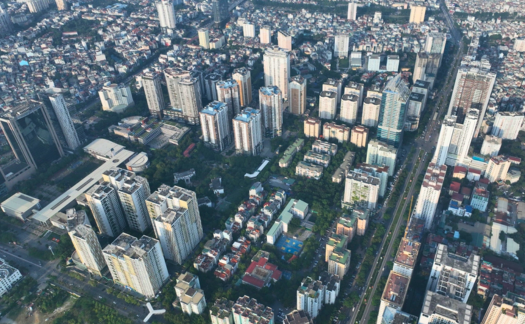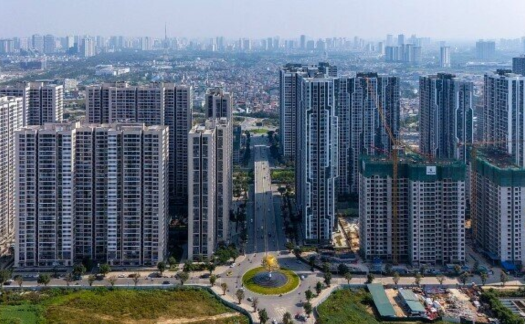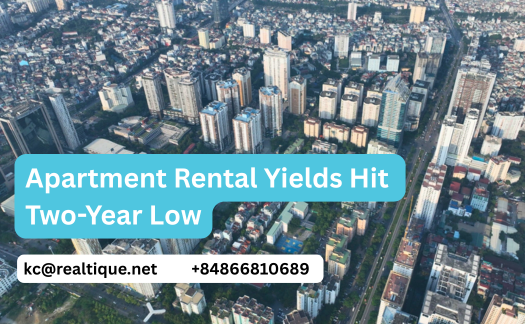Apartment Rental Yields Hit Two-Year Low
Apartment rental returns in Hanoi and HCMC drop to just 3.1%, the lowest in two years, due to surging property prices outpacing rental growth.

Table of Contents
Rental Yields Drop to Historic Lows
In early 2023, rental yields in Hanoi and Ho Chi Minh City hovered around 4.5–4.9%. But according to a recent report by Batdongsan, yields have now fallen to just 3.1% in both cities—the lowest in two years. This figure is calculated by taking the annual rental income and dividing it by the market value of the apartment.
Currently, the average monthly rent for an apartment in Hanoi is around 13 million VND, and in HCMC, it is approximately 12 million VND. However, average sale prices have reached 63 million VND/m² in Hanoi and 59 million VND/m² in HCMC. As a result, the rental yield has become far less attractive for investors.
Nguyen Quoc Anh, Deputy CEO of Batdongsan, notes, “The widening gap between property prices and rental rates is making buy-to-let investments increasingly unappealing.”
Market Imbalance Continues to Widen
The Vietnam Association of Realtors (VARS) confirms that typical apartment rental yields in Vietnam are now under 2%—even lower than average bank deposit rates. One of the main reasons is that rental prices have not kept pace with the sharp rise in property values.
In Hanoi, primary apartment prices reached 70 million VND/m² by the end of 2023, marking a year-over-year increase of over 35%. Compared to Q2 2019, prices have surged more than 72%, while rental rates have grown just 5–10% annually.
Area-Specific Rental Trends

In high-demand districts like Cau Giay, apartments at Discovery Complex fetch 17–19 million VND per month, up just 5% from the start of last year. Similarly, two-bedroom apartments at The Matrix One in Nam Tu Liem range from 22–24 million VND, with rental yields around 3–3.1%.
In suburban projects like Vinhomes Smart City, rental prices for two-bedroom apartments range from 10–15 million VND/month, while studio and one-bedroom units are priced at 7–10 million VND/month. This equates to yields of about 2.9–3%.
In affordable zones such as Linh Dam and Dai Thanh, rent has only slightly increased to 7–11 million VND/month, while property prices have soared 40%. Consequently, yields have declined to around 2.8–2.9%.
Policy Support and Future Direction
Experts suggest that the growing rental burden may accelerate the shift toward suburban and satellite cities where rents are 20–30% lower. However, this movement is hampered by underdeveloped public transport and increased commuting costs.
VARS recommends that the government urgently invest in affordable long-term rental housing, targeting young workers, civil servants, and those in strategic industries. A viable model is Singapore’s HDB system, which provides subsidized rental units for low- and middle-income earners. Under Singapore’s Public Rental Scheme and BTO (Build-to-Order) program, young professionals can rent apartments at 40–50% below market rates until they’re financially ready to buy.
Ready to invest smartly in Vietnam’s real estate market?
📩 Reach out to Realtique for insider insights, expert guidance, and exclusive property deals tailored for international investors.






